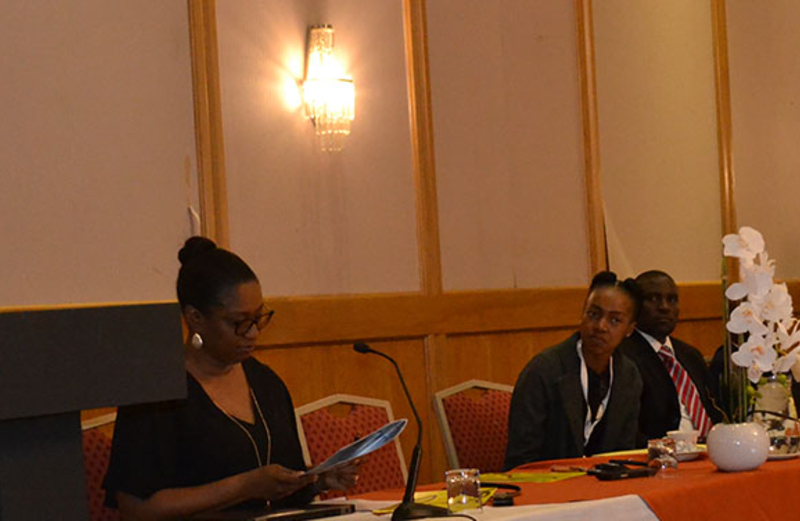STISA 2024 – A guide for Africa to exploit its opportunities

Africa should not only be seen as the home of problems, it is also the land of opportunities. This paradigm shift is inculcated in the six (6) priority areas and associated indicators of the Science Technology and Innovation Strategy for Africa (STISA-2024) to guide countries to invest in the change they want to see, and truly build the “Africa We Want”.
The above role of STISA-2024 in developing Africa was highlighted during a stage-setting keynote address by NEPAD Agency Head of Science, Technology and Innovation (STI) Cluster, Dr Tichaona Mangwende at the opening plenary session of the Southern African Research and Innovation Management Association (SARIMA) Conference taking place from 23 – 25 May 2017 in Windhoek, Namibia. The theme of the plenary session focussed on Innovation, African Leadership and Human Development.
SARIMA immediate past President, Dr Jose Jackson-Malete welcomed the 350 delegates attending the Conference and acknowledged the role of NEPAD Agency in implementing robust STI indicators in Africa and informed participants that due to its technical and professional ability, NEPAD Agency has been selected to facilitate the capacity building session of this year’s SARIMA Conference. She also highlighted the role of SARIMA in working towards achieving STISA-2024 through developing and revising science and technology policy, and promoting professionalism in research and innovation management in Africa, among others.
During the official opening, Pro Vice Chancellor (Research, Innovation and Development) at the University of Namibia, Prof Kenneth Matengu emphasized the need to bring on-board academicians and higher institutions of learning to enhance innovation in Africa. He also bemoaned the lack of commercialization structures in most African Universities that can help to translate academic research in to commerce and facilitate knowledge transfer to also inform policy frameworks. In addition, CEO of Namibia’s National Commission on Research, Science and Technology, Dr EIno Mvula reminded delegates that most African countries are still struggling to meet the minimum commitment of 1% of GDP expenditure on Research and Development (R&D). It was suggested that Africa needs a change of mind-set to do away with the traditional approach to raising funds for research. It is time to do things smartly and effectively to secure the funds required without dependency on foreign resources.
Ms Fumani Mthembi, Managing Director at Pele Energy Group South Africa said that international partners interested in working in Africa must be attuned to the vision of STISA-2024 and AU Agenda 2063. She said there can be no science and research enterprise without a deep love for Africa. Dr Mangwende added that STISA-2024 accelerates Africa’s transition to an innovation-led, knowledge-based economy and fits in to the African Union (AU) Agenda 2063. He said the goals of the AU Agenda 2063 localises the Sustainable Development Goals (SDGs) in Africa and the two key frameworks correspond with each other. NEPAD Agency works towards fulfilling these goals in Africa.
However, Dr Mangwende warned that sometimes we focus too much on the goals that we lose focus on the narrative and miss out on the African story. He further stated that in the push for science and innovation in Africa we must not miss the cultural context because there is no innovation that takes place without context.
“Innovation and cultural context are interlinked. We cannot innovate if we forget African cultural context,” Dr Mangwende said.
Dr Mangwende further added that only when innovation meets the cultural context in Africa, can we truly make the data we collect meaningful because data and numbers on their own mean nothing. We need data to innovate, and Africa has a strong narrative and cultural context so let us use this data to support Africa’s development narrative. STISA-2024 addresses the future of Africa, and the future of Africa is our business so we have to begin to generate the required knowledge to support African development. Knowledge is a renewable resource and Africa has to learn not only to generate knowledge but also how to effectively exploit this knowledge.


